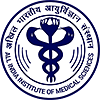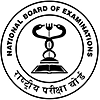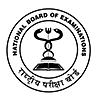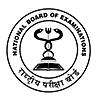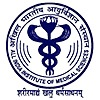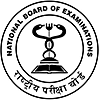MS Ophthalmology

MS Ophthalmology is a two-year post-graduation course that deals with advanced study of the eye's anatomy, physiology, and diseases. There are many job opportunities available for the graduates who are pursuing this role. They can fulfill the Ophthalmologist, Surgeon, Professor/Lecturer, ENT Specialist, Clinical Assistant, Medical Consultant, and many more.
MS Ophthalmology Course Details
| Degree | Masters |
| Full Form | Master of Surgery in Ophthalmology |
| Duration | 2 Years |
| Age | No specific age |
| Subjects Required | MBBS |
| Minimum Percentage | 50% |
| Average Fees | ₹54K - 18 LPA |
| Similar Options of Study | MS (General Surgery), MS (Orthopaedics), MS (Obstetrics & Gynaecology), MS (Anatomy) etc |
| Average Salary | INR 12 LPA [Source: Glassdoor] |
| Employment Roles | Ophthalmologist, Senior Resident/Consultant - Opthalmology, Medical Consultant/Visiting Medical Consultant, Lecturer/Professor, Clinical Data Analyst etc |
| Top Recruiters | Government Hospitals, Private Hospitals, Charitable Hospitals, NGOs, Clinics etc |
About MS Ophthalmology
According to Wikipedia, "Ophthalmology is a branch of medicine and surgery that deals with the diagnosis and treatment of disorders of the eye." The full form of MS Ophthalmology is Master of Surgery in Ophthalmology. The course falls under the umbrella of the Master of Surgery and therefore follows a similar foundation of the study. One of the leading specializations in MS Ophthalmology is the eye's anatomy, physiology, and diseases. Programs at this graduate-level are completed in two years.
Table of Contents
- MS Ophthalmology Eligibility Criteria
- MS Ophthalmology Admission Process
- MS Ophthalmology Entrance Exams
- MS Ophthalmology Colleges
- Why Choose MS Ophthalmology?
- MS Ophthalmology Fees Structure
- MS Ophthalmology Syllabus and Subjects
- Preparation Tips for MS Ophthalmology
- Scope of Higher Education for MS Ophthalmology
- MS Ophthalmology Salary
- MS Ophthalmology Career Options
- Skills to Excel
Eligibility Criteria for MS Ophthalmology
Admission for the MS Ophthalmology course in India begins with checking the course's eligibility criteria, including a minimum aggregate of 45-50% in MBBS in any reputed University or Institution. A passing score is required on the necessary entrance exams. This course is open to all ages. Currently, MS Ophthalmology in India is a very popular and high-demand course and offers a high job scope for aspirants after immediately passing out.
Admission Process for MS Ophthalmology?
The MS Ophthalmology admission process begins with the student passing the eligibility criteria of having a minimum aggregate score of 45% to 50% in MBBS and passing marks on entrance exams conducted by national bodies, institutes, or a group of institutes. Then, aspirants are called to write a written test, participate in group discussions, and have a personal interview after passing these exams. Though the admission process varies from college to college, below mentioned are the steps that one should go through generally to get admission:
How to Apply?
Students must use the online portal/offline network to get the application form first, and it has to be filled. Because of covid, online is the only option available right now. Once done, the aspirant has to upload/attach the required documents per the guidelines and the specifications mentioned. Apply for a loan if necessary and pay the fee if selected.
Selection Process
The selection is based on the MS Ophthalmology eligibility criteria of the minimum scores in the listed exams. Once that is done, there might be an entrance test in colleges. After passing those with a decent score, the aspirant is selected. Either with/without the loan, the fee has to be paid depending on the ones quoted by the institution.
Popular Entrance Exams for MS Ophthalmology
Some universities and institutions or even states may conduct their entrance examinations for MS Ophthalmology admissions. The exam includes concepts related to MBBS Subjects and many more subjects, helping them understand the MS Ophthalmology course details. The exams are:
A Quick Glance At the MS Ophthalmology Entrance Exams
The students must qualify for the national or state level MS Ophthalmology entrance exams such as NEET, JIPMER, AIIMS, etc. Aspirants can choose B- schools or coaching institutes that prepare students for the entrance exams. The entrance exam gives a glance at the entire course, thus giving an overview of the topic.
- The aspirant needs to learn time management to be able to attempt all the questions
- Time management and aptitude knowledge are required for the generalized section
- The exams are held only in English, and thus language proficiency is a must
- Study the entire syllabus for the entrance exams, covering each topic and studying in detail about them
Top 10 MS Ophthalmology Colleges in India
India has a variety of colleges offering a course in MS Ophthalmology. Since it's a form of specialization, it requires a practical and theoretical study which helps them get in-depth knowledge on the course. These are the top 10 colleges in India, according to the updates given in 2021.
|
SI.No. |
Name of the College |
|
1 |
|
|
2 |
|
|
3 |
|
|
4 |
|
|
5 |
|
|
6 |
|
|
7 |
|
|
8 |
|
|
9 |
|
|
10 |
Fee Structure for MS Ophthalmology
The MS Ophthalmology fees may vary based on MS Ophthalmology colleges, and a government-based institute charges less than a private institute because of its infrastructure and facilities. The average price of an MS Ophthalmology course in a private institute is about INR 5K - 5LPA.
|
College Name |
Fees Per Annum |
|
NIMS University, Jaipur |
INR 3 Lakhs |
|
Government Medical College, Amritsar |
INR 12.5K |
|
Bangalore Medical College and Research Institute, Bengaluru |
INR 1 Lakhs |
|
SRM Institute of Sciences and Technologies, Kanchipuram |
INR 20K |
|
Maulana Azad Medical College, Delhi |
INR 10K |
Syllabus and Subjects for MS Ophthalmology
The MS Ophthalmology course is a two-year program consisting of 4 semesters. It covers fine microsurgery using the operating microscope and intraocular surgery or vitreoretinal surgery of the eye. Depending on the course modules, each college may have its topics and subjects. A few of the subject topics are:
- Orbital and Ocular Anatomy
- Gross anatomy
- Histology
- Ocular Physiology
- Ocular Pathology
- Biochemistry
Read More About MS Ophthalmology Syllabus and Subjects
Why Choose MS Ophthalmology?
MS Ophthalmology is a highly demanding course for the aspirants trying to work in the Medical(eye) oriented fields. It is a course that provides a wide range of opportunities. This program emphasizes the importance of research for developing students' understanding and furthering their learning. It even offers a high job scope abroad because of the language proficiency.
What is MS Ophthalmology all About?
MS Ophthalmology or Master of Surgery in Opthalmology is a two years Post Graduate course. Students with a good score in MBBS can pursue this program. This course helps students develop their thinking and management skills to produce original insights into anatomy and surgeries related to the eye. The MS Ophthalmology course list extensively covers topics from advanced anatomy, physiology, and eye diseases.
What Does a MS Ophthalmology Graduate Do?
MS Ophthalmology graduates have a variety of job roles and career-related plus points because of the good knowledge with the most needed skill. The aspirant chooses to work with an academic or welfare organization firm or research and pursue further education. Some of the options are:
Teaching Profession: Graduates can pursue teaching positions in educational and research institutions to share their knowledge and expertise with younger students.
Job role: MS Ophthalmology aspirants have a variety of job roles and are hired in the sectors of Some of the designations are Defence Services, Hospital Eye Casualty Departments, Laser Eye Surgery Clinics, Operating Theatres, Outpatient Clinics, Research & Medical Colleges/Universities and many more.
Reasons Why MS Ophthalmology Can Fetch You a Rewarding Career?
MS Ophthalmology is an accredited master's program and provides the aspirants with high career opportunities and other benefits. Since medicine is a very important concept, being a master's in it is a plus that one would carry, and any firm would accept a person with the knowledge. The benefits of the course are:
High Pay: The job offers a good starting salary for freshers and a well of ones for senior or experienced graduates, thus marking it as a good one in the economy.
Exposure: A MS Ophthalmology degree gives good social skills, thus having a good effect as a part of CV and gives a good job scope even abroad, because of the language skills.
Opportunities: It gives a wide job scope in various sectors as it is the most basic requirement. It even has a high job scope abroad.
Read More About MS Ophthalmology Jobs
Preparation Tips for MS Ophthalmology
MS Ophthalmology entrance exams involve both an aptitude and a knowledge testing type of questions. So being well prepared with it would be of use. Since the exams themselves brief the course, it would be of more use to get into an in-depth study. Below are some preparation tips made by experts for aspirants who want to pursue MS Ophthalmology.
Time Management: The aspirant should be capable of answering all the questions in the specified time. Since it involves sociology, it would be lengthy.
Reading Newspapers: General knowledge and current affairs questions are often asked in entrance exams and sometimes in personal interviews and group discussion rounds.
Skills: Trying to focus more on MBBS Syllabus, GK, and subjects taught related to it, which are all included in the questions
Planning: To prepare well in advance, aspirants should practice with sample question papers, mock tests, and quizzes. By analyzing their errors, aspirants can develop a more effective strategy to attempt entrance exams.
Scope For Higher Education
Having an MS Ophthalmology degree opens up a wide range of career options, and it is even possible to study further after completing the course. The most commonly followed path in this aspect is the Doctorate degrees, which students can obtain in different specializations involved in the course module. When higher education and the degree are put together, it gives the students a high job scope. A few of the courses are:
- Doctor of Medicine in Ophthalmology
- Master of Science in Ophthalmology
- Postgraduate Diploma in Ophthalmology
- Postgraduate Certificate program in Clinical Ophthalmology
Salary of a MS Ophthalmology Graduate
The starting salary of an MS Ophthalmology graduate would be around INR 1.5 - 15 LPA [Source: Glassdoor]. As skills and experience increase, so will the salary increment. The salary varies depending on whether it's a private or a public sector and the firm's popularity. Even the job role of the aspirant is a factor that is noted while the salaries are discussed.
Read More About MS Ophthalmology Salary
Career Options After MS Ophthalmology
After completing a course in MS Ophthalmology, the aspirant can work in public and private sectors depending on the type of work they prefer or their skills. They even have an option of further specialization by doing a postgraduate degree like a doctorate or even a further extension by doing other full-time courses. But even this degree has a high job scope because of the demand and the industrialization and development happening. Some of the best job designations for the graduates after the course of MS Ophthalmology in the field are as follows:
- Ophthalmologist
- Lecturer/Professor
- ENT Specialist
- Clinical Assistant
- Clinical Data Analyst
- Consultant
Skills That Make You The Best after MS Ophthalmology Graduate
The course provides a career boost for people seeking MS Ophthalmology jobs in teaching or social fields. It opens a variety of career opportunities for aspiring welfare/socially active people at various international agencies. Some of the skills required for the MS Ophthalmology graduates are as follows:
- Analyzing and Problem- Solving,
- Decision-Making,
- Critically Interpreting Data and Text
- information Skills
- Communication
- Technology Skills
- Practical Skills















